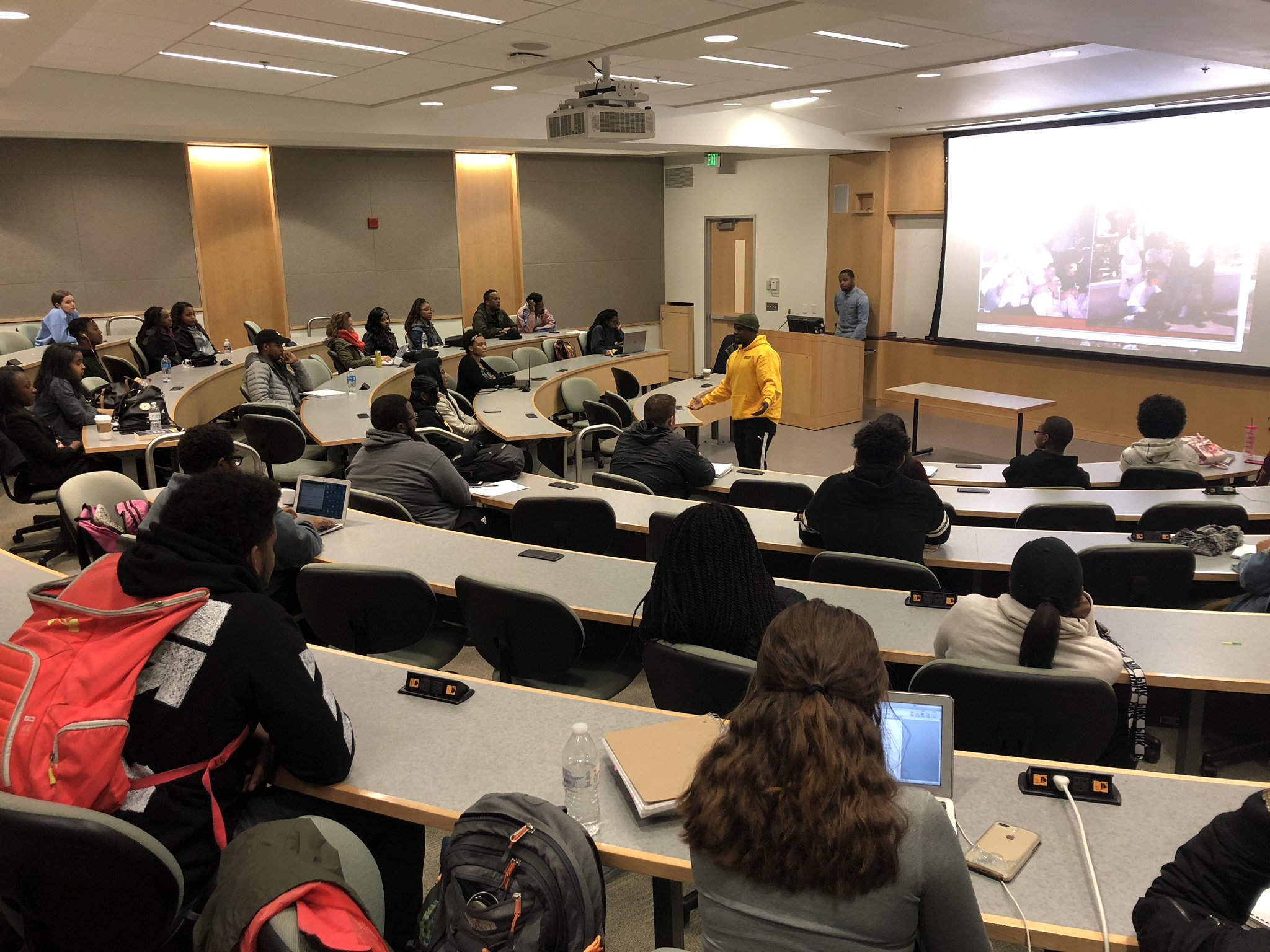
Activist shares accounts of being a child of incarcerated parent
By: Albert Ivory, Contributing Writer
Photo by Albert Ivory/ The Towerlight
As the child of an incarcerated parent, author Tony “Slugg” Lewis, Jr., grew up knowing the trauma that mass incarceration can create for prisoners’ families.
“Studies have also shown that having an incarcerated parent can be more traumatic than a dead parent,” Lewis said.
Lewis, who is also a philanthropist and community leader, visited campus on Nov. 7 to speak about mass incarceration.
Lewis grew up in Hanover Place in Northwest Washington, D.C., which is near the epicenter of the crack trade. He talked about his mother going in and out of mental institutions due to the impacts of his father’s incarceration.
His father was arrested for a drug offense on April 15, 1989, and is currently behind bars, serving a life sentence.
Since there’s no state prison in Washington, D.C., Lewis’ father was taken to a penitentiary in Lompoc, California, 3,000 miles away. Lewis said he visits his father from time to time to maintain a relationship.
Lewis’ role model and primary caretaker was his grandmother, who attended the University of the District of Columbia. Lewis said he was grateful for his grandmother for having to step up and carry the burden and thought about the stress that put on her.
After graduating from college, Lewis got a job as a Roving Leader, doing youth outreach from 2000-2005. He’s currently the head coordinator for helping former incarcerated people re-enter society and has kept in touch with many of the people, especially receiving notifications about them getting employment, working on their education, getting a home and having a family. These factors contributed to Lewis’ sense of hope and optimism in the world.
Lewis, who is married and has two daughters, also mentioned the generational trauma that incarceration has on loved ones when he visited the prison that his father was held, along with his daughters.
His oldest daughter asked why her grandfather was not coming home, and staying there.
Lewis responded, “You’re grandfather is a good person, but he had done bad things and had to pay the consequences for them.”
He noted it was painful to look in her eyes, but that he had to accept that reality.
Lewis then shared some statistics. 2.3 million people are incarcerated in local, state and federal jails or prisons. Over 5 million children have at some point had an incarcerated parent. 1 in 14 American children have an incarcerated parent and 1 in 7 black children has had an incarcerated parent at some point. 33-36.5 million children have a parent with a criminal record, which is approximately half of the United States population of children. 2.7 million children have a parent behind bars and a larger number of this population are children under 10.
“Parental incarceration is one of the most severe forms of trauma a child can go through, with major social, emotional and academic consequences,” according to Matt Haney, Vice President of San Francisco’s Board of Education.
Mass incarceration studies link depression, aggression, disruptive behavior and anxiety to children of incarcerated parents. Children are often stigmatized for having incarcerated parents and experience poverty because of a source of income leaving their home.
Freshman Queena Williams found the event to be informative.
“I wanted to come hear about this, and it’s something that we talked about in African American studies,” she said.
Lewis said that combating mass incarceration has to “start with the economics.”
Mass incarceration leads to making economies out of prisons, he said. He provided a list of organizations that he believes are addressing the issue authentically and thoroughly, including Children of Incarcerated Parents Partnership, The Osborne Association, The Sentencing Project and the #Cut50 campaign launched by CNN commentator, Van Jones.
The event was hosted by the Office of Civic Engagement and Social Responsibility, the Black Student Union, the Towson chapter of NAACP and Theta Omicron chapter of the Phi Beta Sigma Fraternity.
“The purpose of the event is that we like to keep dialogues like this going since it impacts everyone,” said BSU secretary Miyah Overton.

